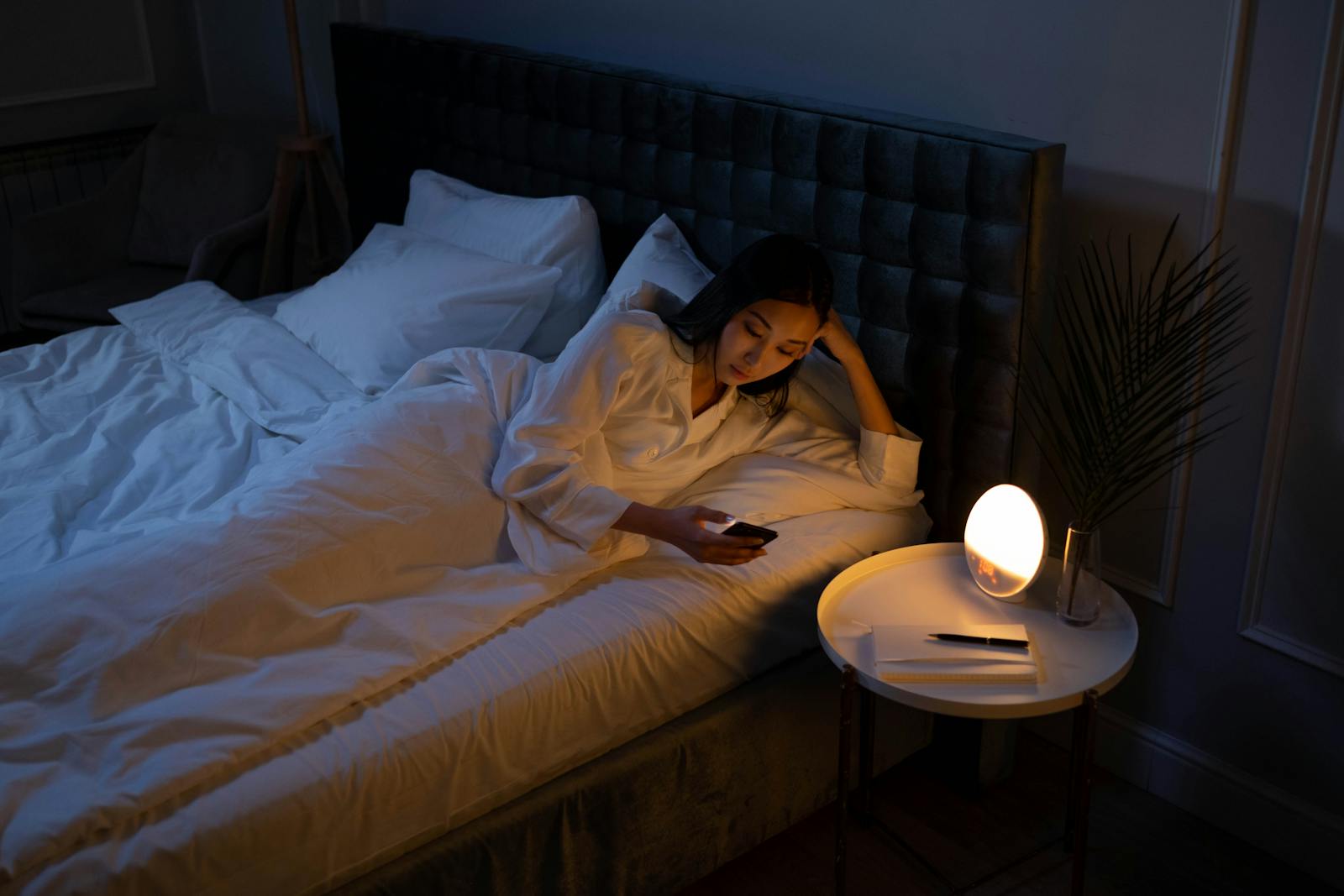Have you ever wished you could bank those extra hours of sleep on the weekends for the busy workweek ahead? It’s a common desire, especially when we find ourselves dragging through the day after a night of insufficient rest. The reality, however, is that sleep doesn’t work like a savings account. No matter how much we wish it did, sleeping extra hours doesn’t roll over into the next day like staying up late does. This sleep paradox is a fascinating topic, and it’s one that affects us all, whether we’re night owls or early birds, students cramming for exams or professionals burning the midnight oil.
The peculiarities of our sleep patterns and how they impact our daily lives
For starters, consider the scenario where you’ve only managed to get four hours of sleep. The next day, you’re likely to feel the effects of sleep deprivation—sluggishness, irritability, and a desperate need for a nap. To recover, you might feel compelled to sleep extra hours, hoping to ‘catch up’ on lost sleep. But here’s the kicker: even if you indulge in a luxurious 12-hour sleep marathon, you’ll still need around eight hours of sleep the next night. The body’s need for sleep doesn’t diminish just because we’ve had a surplus.
This phenomenon is not just a matter of feeling rested or not; it has clinical relevance. Research has shown that an occasional all-nighter might actually serve as a temporary mood booster. A study published in the journal Neuron found that acute sleep deprivation in mice increased dopamine release and triggered brain changes that could alleviate depression. The mice, kept awake for a period akin to a human all-nighter, exhibited behaviors indicative of a state of mania—increased aggression, hyperactivity, and hypersexuality. When researchers looked closer, they found that these effects were tied to an increase in dopamine activity in the brain’s reward system, particularly in the medial prefrontal cortex. This discovery suggests that short-term sleep loss could have significant alterations in the brain’s reward system.
But before you decide to pull an all-nighter to lift your spirits, it’s important to note that chronic sleep loss is detrimental to both physical and mental health. The ‘tired but wired’ feeling that comes after a sleepless night may seem like a quick fix for the blues, but it’s not a sustainable strategy. Doctors, nurses, and med students are all too familiar with this sensation, and while it may seem beneficial in the short term, the long-term effects are less than ideal.
The study’s lead author, Yevgenia Kozorovitskiy from Northwestern University, emphasizes that the antidepressant effect is transient and that a good night’s sleep is still paramount. She suggests that instead of sacrificing sleep, engaging in physical activities like hitting the gym or going for a walk might be a better alternative for mood enhancement.
Revenge bedtime procrastination
But what about those times when we deliberately postpone our bedtime? The concept of ‘revenge bedtime procrastination’ has gained traction, especially among individuals with high-stress jobs and little free time. This form of procrastination involves sacrificing sleep for leisure time, driven by a schedule that lacks free time during the day. While it may offer temporary relief and enjoyment, the consequences of such late nights can be dire, leading to significant sleep deprivation and its associated negative effects on mental, physical, and emotional health.
The behaviors associated with bedtime procrastination are quite telling. They include delaying the act of getting into bed, staying up later than intended without a valid reason, and being aware that such delays could lead to negative consequences. This procrastination often results in favoring activities that offer immediate enjoyment, such as watching TV or scrolling through social media, over sleep.

The psychology behind bedtime procrastination is complex and multifaceted. It may involve a failure in self-regulation, as our capacity for self-control is typically at its lowest at the end of the day. Some individuals may naturally incline toward procrastination, while others may find their self-control depleted by the day’s demands. On the other hand, some argue that bedtime procrastination is not so much a lack of self-control but an attempt to reclaim time for oneself in response to stress.
As we continue to unravel the mysteries of sleep and its impact on our lives, it’s clear that while we cannot bank extra sleep for later, understanding our sleep patterns and behaviors can help us make better choices for our health and well-being.
Study sleep deprivation science and its benefits, plus ways to improve sleep
Moving on to the science behind sleep deprivation, it’s a complex and somewhat counterintuitive subject. The brain is a mysterious organ, and sleep is one of its most enigmatic processes. We’ve already touched on the fact that an occasional all-nighter might have a transient antidepressant effect, but let’s delve deeper into what’s happening in our heads when we skimp on sleep.
It’s important to understand that sleep deprivation can increase dopamine release, which is associated with the brain’s reward system. This neurotransmitter is linked to feelings of pleasure and motivation, which explains why, after a sleepless night, some people might feel a temporary mood lift. The study in Neuron showed that mice, after being kept awake for a period similar to a human all-nighter, exhibited behaviors indicative of a state of mania, such as increased aggression, hyperactivity, and hypersexuality. These behaviors were tied to an increase in dopamine activity in the brain’s reward system, particularly in the medial prefrontal cortex.
The implications of this are significant. If acute sleep deprivation can trigger such profound changes in the brain, it suggests that our understanding of sleep’s role in mood regulation is still evolving. The increase in dendritic spines observed in the prefrontal cortex of the mice indicates that the brain may rewire itself to maintain an elevated mood, even in the face of sleep loss. However, it’s crucial to remember that these effects are short-lived and that chronic sleep deprivation has well-documented negative impacts on health.
The study’s lead author, Yevgenia Kozorovitskiy, cautions against using sleep deprivation as a mood booster. She underscores the importance of a good night’s sleep and suggests physical activity as a healthier alternative for mood enhancement. This is particularly relevant when considering the treatment of insomnia in conditions like PTSD, where medications like Pimavanserin 34 mg at bedtime have been explored.
Moreover, the dark side of light overexposure and the use of sleep aids like Lemborexant and Daridorexant for the treatment of insomnia are areas of ongoing research. These studies highlight the delicate balance our bodies need between light, darkness, and sleep, and how modern lifestyles can disrupt this balance.
Let’s talk about revenge bedtime procrastination, a phenomenon that has gained attention in our high-stress, always-connected world. This type of procrastination involves delaying sleep for leisure activities, driven by a schedule that lacks free time during the day. It’s a form of self-reclamation of time, but it comes at a cost. The behaviors associated with bedtime procrastination include delaying the act of getting into bed, staying up later than intended without a valid reason, and being aware that such delays could lead to negative consequences.
The psychology behind bedtime procrastination is multifaceted. It may involve a failure in self-regulation, as our capacity for self-control is typically at its lowest at the end of the day. Some individuals may naturally incline toward procrastination, while others may find their self-control depleted by the day’s demands. Alternatively, some argue that bedtime procrastination is not so much a lack of self-control but an attempt to reclaim time for oneself in response to stress.
Developing a relaxing nightly routine can be a powerful tool in combating sleep procrastination. This routine can signal to your body that it’s time to wind down and prepare for sleep. Avoiding stimulants like smartphones and other electronic devices before bed can also help prevent the temptation to stay up late.
While the allure of staying up late for a mood boost or a few hours of leisure time might be tempting, the science tells us that the benefits are fleeting and the costs can be high. Chronic sleep deprivation can lead to a host of mental, physical, and emotional health issues. By understanding the science behind sleep and the psychology of procrastination, we can make informed decisions that support our well-being. Whether it’s through establishing a consistent sleep schedule, engaging in physical activity, or creating a bedtime ritual, there are steps we can take to ensure we’re getting the restorative sleep our bodies and minds need.
Related posts:
Why One Sleepless Night May Actually Help Improve Depression
What Is “Revenge Bedtime Procrastination”?
Revenge bedtime procrastination is why you stay up late scrolling — Calm Blog





